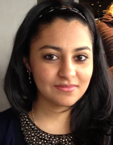 I am in the recruitment stage between interviews and offers. At this moment in time, when I look to August I can see myself as both in training and not in training. I can see myself as employed and as unemployed. Perhaps it is the task of ranking potential future jobs, or the desire to avoid this task, that has me thinking very seriously about my future as a doctor in the NHS.
I am in the recruitment stage between interviews and offers. At this moment in time, when I look to August I can see myself as both in training and not in training. I can see myself as employed and as unemployed. Perhaps it is the task of ranking potential future jobs, or the desire to avoid this task, that has me thinking very seriously about my future as a doctor in the NHS.
When I took a year out after foundation training, it had been for a number of reasons. Yes, part of it was the desire to gain more experience, to travel, to work abroad, and to finally pick a specialty to commit to. But perhaps, more importantly, it was a chance to step off of the conveyor belt of medical training and re-examine my choices so far.
Once you choose a career in medicine, for the majority of us, it is a pretty clear path: you pick the right A-levels, you do the right extracurricular activities, you apply, you interview, you study, you pass, and then you qualify. This milestone that you have spent the better part of a decade working towards actually marks the beginning of the journey. No matter what route you pick from this point you have a long way to keep going. One day, you aspire to wake up as a consultant, and at that point you must still go further and work harder in your specialty.
So, for the past few months, I have thought seriously about this decision. With the maturity, experience, and insight that I lacked aged 16 when I first started this journey. I now know the true nature of the work, not only that you work long hours, but that you still have to smile at your patient and think as clearly in that painfully long last hour. I knew that the work would be rewarding, but I now know parts of it can be thankless. I knew back then that there would be stress, responsibility, and pressure—I now see the grey hairs that I blame on the aforementioned. My view of medicine is no longer idealistic or rose tinted. It is somewhat grittier. It has come of age.
I also know that there are alternatives: more lucrative, less stressful, less consuming of one’s personal life, less demanding of one’s emotional reserve. I know of colleagues who have opted to pursue other interests and passions, and to explore other options. We are fortunate in that our degree, despite being vocational, does open many doors and prepares us for any number of new challenges.
There is at times criticism towards those who leave medicine, but this seems rather unjust to me. People should be at liberty to change their mind, to reconsider their choices, and to pick different paths. To suggest that we are obliged to stay in a career we don’t want to feels a bit like being told that one cannot consider divorcing a partner they later find to be incompatible (especially because the wedding was so costly). These people will go on to earn and pay their taxes and pay back into the nation’s coffers that which was spent on their training—and still contribute to society in whichever way suits them best.
However, despite all that I now know, I also know this: when I think of August, I am happier at the idea of being back in training. I look forward to working, to learning, to being in a team, to seeing familiar faces regularly, and to meeting new patients daily. I am excited to put on my NHS lanyard and become a part of the great institution once again. So, here I am, choosing to jump back on the conveyor belt, safe in the knowledge that medicine is not just a default position because I made a choice at 16; it is the choice I make again, when given all of the facts and all of the options.
The point of this spreadsheet induced epiphany? Well, future employers value “commitment to specialty” highly in the recruitment process, but I want them to know that any uncertainty a candidate may have displayed at some point in their career (taking a year out, changing specialty) may in fact speak to a stronger, more enlightened commitment. While this reflection may not be as quantitative an indication of commitment as a number of audits and QIPs; on a personal level, I feel it will have a greater influence in my attitude towards my work, my colleagues, and my patients.
Sanna W Khawaja has recently completed her foundation training in Manchester. Find her on Twitter: @SannaWaseem
I have read and understood BMJ policy on declaration of interests and declare that I have no competing interests.